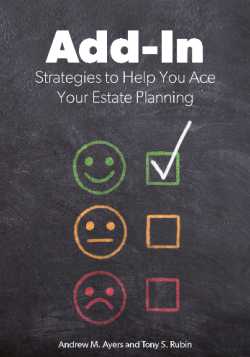 With the passing of Queen Elizabeth last week, we are once again confronted with a high-profile celebrity and inevitably, questions will be asked about whether the Queen died with a will or not. Since she was a monarch and ruled for more than 70 years, it's pretty safe to assume that some kind of estate planning is involved with her estate. If nothing else, there's clearly a succession plan for who inherits her role as the monarch, and likely buried in there is also a plan for how her assets and significant fortune are to be managed and distributed.
With the passing of Queen Elizabeth last week, we are once again confronted with a high-profile celebrity and inevitably, questions will be asked about whether the Queen died with a will or not. Since she was a monarch and ruled for more than 70 years, it's pretty safe to assume that some kind of estate planning is involved with her estate. If nothing else, there's clearly a succession plan for who inherits her role as the monarch, and likely buried in there is also a plan for how her assets and significant fortune are to be managed and distributed.
I was at a soccer game for one of my sons this weekend and somehow our sideline talk got onto the question of whether the Queen even had a will. One of the other parents hopped on Google immediately and told us that the Queen's will would be kept secret. The naturally following question was whether or not commoners like us can keep our wills private as well. Being the only lawyer in the group, it was my turn to chime in and explain that there are a variety of ways you can create an estate plan and keep things out of the public eye.
Creating a Trust for Privacy
The most common method for keeping your estate private is to create a trust to hold your assets. If you read books or blogs or listen to podcasts, it's the #1 piece of advice you'll see when it comes to estate planning. Almost every "expert" will tell you that you need a trust (which is a great way to drum up more business for the online legal form industry which will "sell" you a trust for a small fee).
You'll find that lawyers may have a different set of advice for you than the online legal form site. While lawyers will make more money by creating a trust-based estate plan for you, there can be other methods of protecting your privacy that are available to you that those online sites won't offer. And of course, the downside to that website is that you may not get the right form for your situation and you leave behind a major mess for your family (which is when the lawyers involved are VERY HAPPY you used that site, they get paid a lot of money to clean up that mess).
Plus, if you're in a state that has informal probate procedures, a trust may be overkill for your needs or your estate planning goals. But the only way to truly know what would work best for you is to actually speak to your financial advisor and your attorney to get professional advice on the best way to handle your legacy. For example, one big way to make sure you really get the privacy you deserve is to make sure to have the correct name on your trust. If your name is John Smith and your trust is the John Smith Living Trust, there's not much privacy that attaches to that trust. So if anonymity is your goal, talk to the professionals and make sure you properly name your trust.
Using LLC's for Privacy
Another way to keep the ownership of your assets private is to use LLC's (or other corporate forms) to own the assets. For example, many of my higher-profile clients do not want their home addresses to be publicly searchable on tax records. In order to add an additional layer of protection, they utilize an LLC or a trust to be the owner of the property so that their names are not in the public tax records.
Putting real estate in an LLC also helps keep that real estate out of probate court when you die because there is no need to sell the property or change the title when someone dies - you are working within the LLC and its provisions for what happens to the ownership of the LLC when that owner has died.
In addition to your home, you may have other assets that can benefit by being owned in an LLC to help protect your privacy. Similar to the trust though, make sure you are working with a professional to get the right level of anonymity or protection that you are looking for when using an LLC. When creating an LLC, you're also creating a business that will have a separate tax identification number (an EIN) and unless you are familiar with the tax code, you'll probably want to make sure you're connected to a good accountant to assist you with the process.
Next Steps
You don't need to be the Queen of England to have reasons why you would want to keep your estate planning and assets private. If you're ready to get started, let's set up a Legal Strategy Session to discuss the best options for you and your legacy. Your home may not be the size of Buckingham Palace, but that doesn't mean you shouldn't protect it through estate planning.


